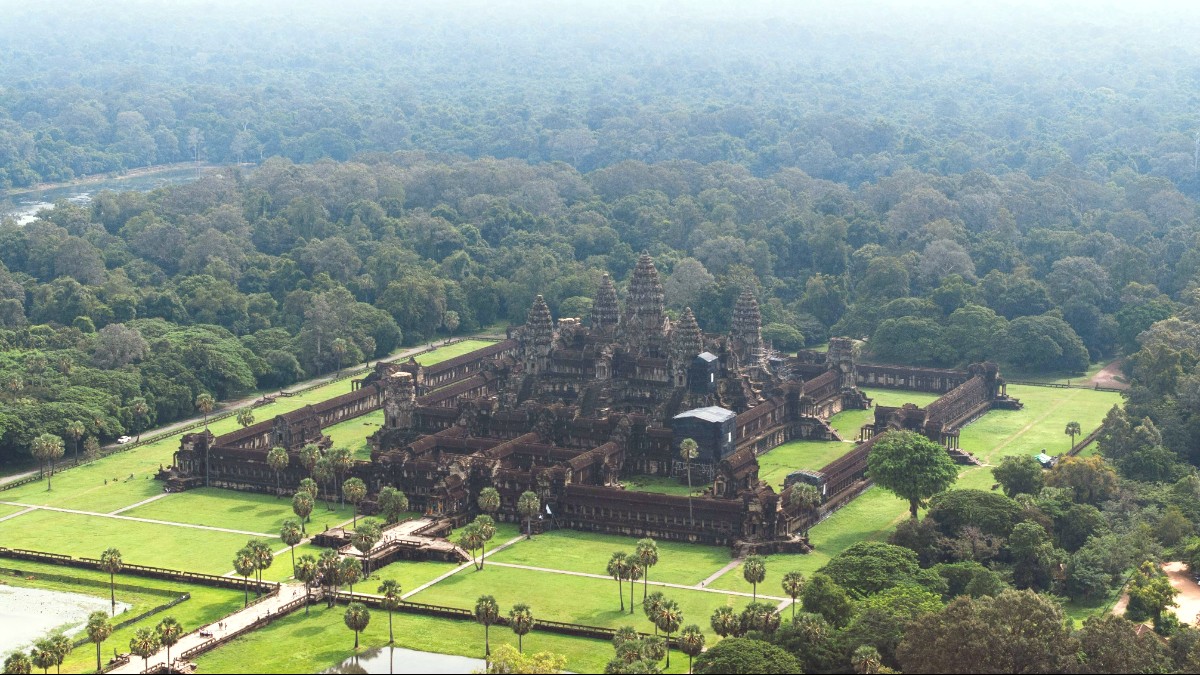
Cambodia
High temperatures persist, averaging 28-32°C (82-90°F). Humidity remains high. Frequent, often short, but heavy afternoon downpours characterize this season. Mornings often remain clear and bright.
Some unpaved roads in rural areas might become muddy and difficult to traverse.
Crowded and higher prices.
Weather pleasant, clear skies, lively atmosphere.
Most crowded time, popular temples see large numbers of visitors, higher prices.
Fewer crowds, but heat and rain
Fewer crowds, better lodging/tour prices, lush landscapes in late shoulder season.
March can be extremely hot, July/August increasing rainfall could alter outdoor plans.
Cheaper, fewer tourists, but hot and wet
Significantly fewer tourists, lowest accommodation/tour prices, dramatic clouds for photography, beautiful temple reflections.
High heat and humidity, frequent heavy rains (often predictable afternoon downpours), muddy rural roads.
The dry season presents the best chance for clear skies and a perfect view of the sunrise at Angkor Wat. However, the green season can lead to dramatic reflections of the temple in rain-filled ponds. Arrive very early regardless of the season for a good viewing spot. The green season makes the landscape lush and yields reflective surfaces after rain, while the dry season brings clear light and blue skies, both good for photography.
The dry season brings more comfort for extensive walking and cycling, as paths are dry and temperatures are more moderate. This time of year facilitates longer periods of outdoor exploration.
Best for clear skies at sunrise and comfortable walks.
Great for reflective temple photos after rain.
Start early for best views and cooler temperatures.
Dry season allows for longer, more comfortable outdoor exploration.
Wet season offers greenery and unique photo opportunities.
Acquire your visa and entry documents well before your trip to Cambodia. Most nationalities need a visa.
Ensure your proper visa type before departure for a smooth entry process.
Gather these documents for a smooth immigration process.
Siem Reap generally presents a safe environment for tourists, but caution is prudent.
Flooding: During peak wet season (Sept-Oct), some areas, especially rural roads, can experience temporary flooding, which might change travel plans.
Landmines: While major tourist areas are clear, unexploded ordnance (UXO) still poses a risk in remote, untraveled rural areas. Always stick to marked paths.
| Service | Benefit | Link |
|---|---|---|
| Visa Application | Consumer visa services for easy application. | IVisa / VisaHQ |
| Travel Insurance | Coverage for adventurous travelers and nomads. | World Nomads / SafetyWing / Insubuy |
| Flight Issues | Assistance with delayed or canceled flight compensation. | AirHelp |